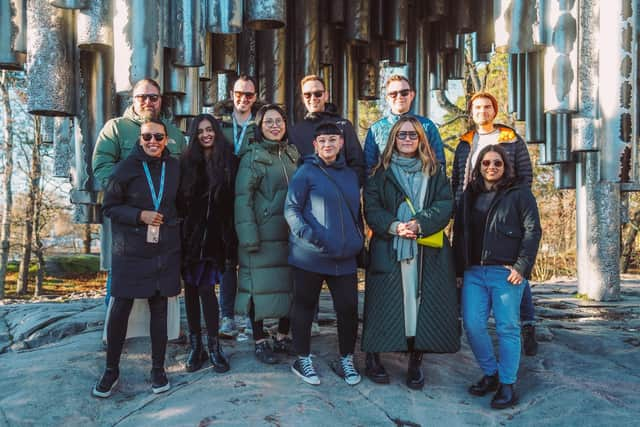Follow the Finns: embrace risk, failure and ‘Sisu’ - Nick Murray
Why Finland?
With an ecosystem valued at €37bn, boasting 1,822 startups, 500 plus investors, and the yearly Slush conference attracting 12-25,000 people, Helsinki marries entrepreneurial excellence with an enviable quality of life. Finland’s eight unicorns happily pay up to 49.2 per cent tax, viewing it as a civic badge of honour to support the country’s high-functioning social infrastructure.
This is what I learned and what Scotland could adopt from Finland.


Embrace risk, failure and ‘Sisu’
Advertisement
Hide AdAdvertisement
Hide AdHelsinki’s ecosystem was built on failure. Nokia’s 2008 crash released hundreds of developers into the job market. Many started businesses, and failed. They started again, and with the combined support of the universities and some light state intervention, the scene blossomed.
Slush was, and still is, run by students, and frequently refreshes leadership to avoid things getting stale. The conference now attracts thousands every November, including international investors looking for the next big thing. This success didn’t just happen. Early on, the organisers chartered a plane of Silicon Valley VCs to showcase their offering. That gamble paid off. Investments in Finnish startups reached over €1bn in 2021 alone.
The Finns call this spirit of perseverance “Sisu”, a stoic determination to push through hard times like chipping through a block of ice. This mindset has parallels with entrepreneurial resilience, a level of mental toughness built through embracing failure and risk.
Egoless collaboration
The lack of ego in Helsinki was striking. The universities, accelerators and public sector work seamlessly to streamline support activity.
Maria01, a massive enterprise hub based in an old hospital, houses startups, incubators and investors, all mingled under one roof. Their public sector sees themselves as part of this community, rather than part of the state.
In contrast, Scotland’s distributed and competitive ecosystem is marred by a sense of tribalism of brands and geography, with siloed and disconnected services across regions, where similar and competing players confuse the entrance point or support roadmap for Founders.
Our opportunity
The Finnish message is clear; If you’re fighting for your piece of the pie, you’re not fighting for the big picture. To attract international attention and investment we must discard tribalism and adopt a “Team Scotland” approach to act as a national flare gun, illuminating what we have to a global audience.
Encouraging new players to contribute to the ecosystem and showcase “their” Scotland will lead to fresh ideas and help retain graduate talent.
Advertisement
Hide AdAdvertisement
Hide AdThere are rumblings of a refreshing approach to state support, such as the energy behind realising 2020’s Logan Report recommendations. The Tech Ecosystem Fund empowering grassroots projects earlier this year, the appointment of Chief Entrepreneur Mark Logan and the Tech Scalers going to community-builders CodeBase, all mark a vote of confidence in those on the ground to deliver impact with light state support.
As they say, “If you want to go fast, go alone, if you want to go far, go together”. I believe that, together, we can move Scotland closer to the Finnish line.
Nick Murray, Co-Director, Startup Grind Scotland
Comments
Want to join the conversation? Please or to comment on this article.